Unspeakable by Ploy Pruekcharoen
Thailand is a small country in Southeast Asia best known for its beautiful beaches, ancient Buddhism temples, street food, and rich cultures. However, under the nickname ‘Land of Smiles’, not many outsiders know how Thai people have sacrificed their blood, sweat, and tears asking for their right to freedom of expression.
“Whoever, defames, insults or threatens the King, the Queen, the Heir-apparent or the Regent, shall be punished with imprisonment of three to fifteen years.” (Section 112 of Thai Criminal Code)
Have you ever imagined getting caught for sharing a Facebook post or partaking in a parade? Over two years, there were more than 200 cases under the Lèse Majesté Law (Section 112) in Thailand. The law has a long history with criminalized acts of insult since 1957, and it has never been subjected to change since 1976. The unclear scope of this law and unreasonable punishment made it the most problematic and inhumane law in Thailand.
By designing this set of data visualizations, I hope to share the story of people who have been prosecuted under the Lèse Majesté Law and the current political issues that are still going on in Thailand.
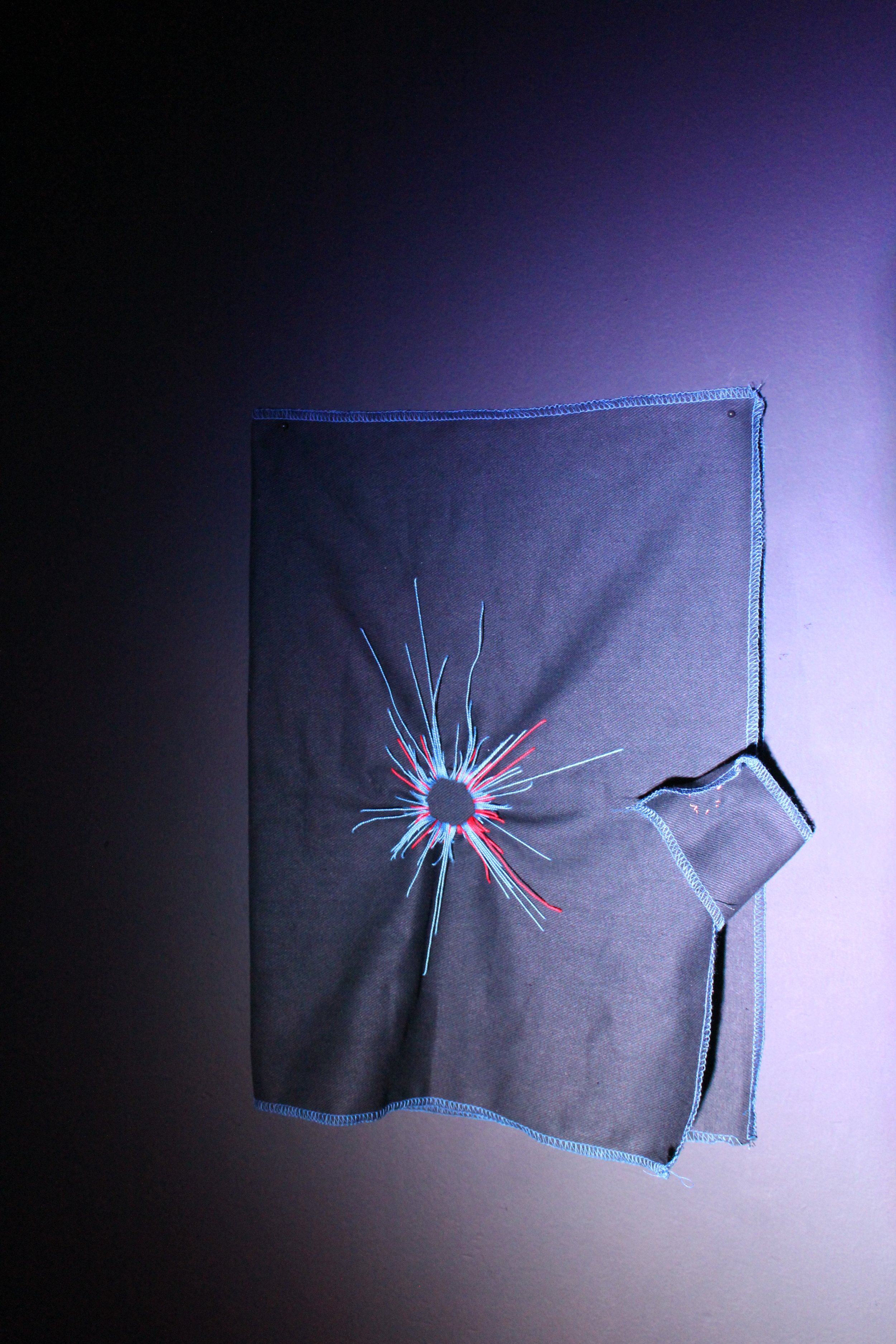
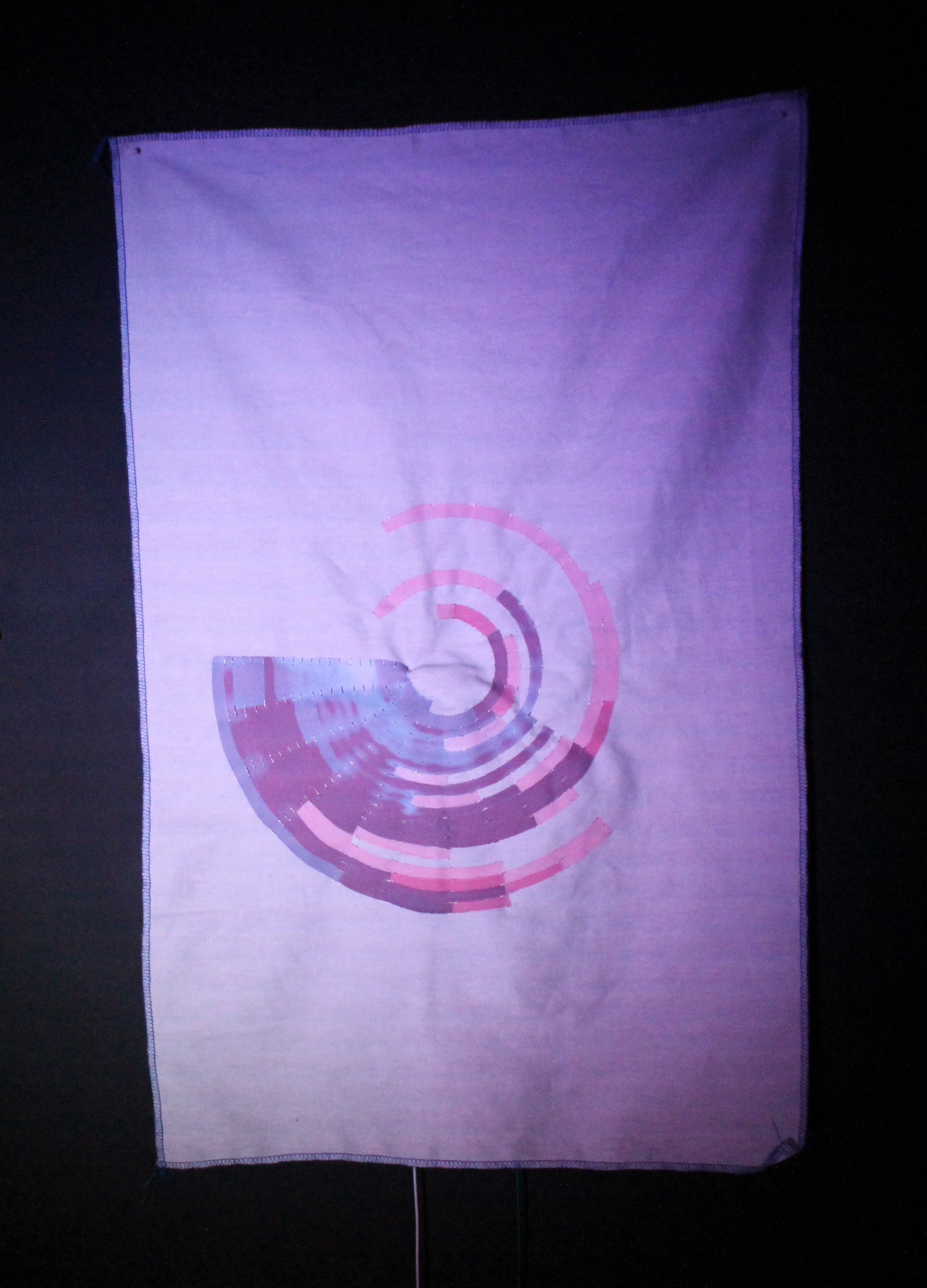

Unspeakable shows the number of prosecutions regarding the Lèse Majesté Law from November 2020 to May 2022 and is separated into three parts based on different variables, including gender and age (part 1), months and causation (part 2), and locations of the court/police station (part 3).
PART 1: Who are they?
I gathered data of people who had been prosecuted under Section 112 from November 2020 to May 2022 to create an interactive e-textile. For the cases that have information about the defendant’s age and gender, I embroidered them in a piece of black fabric, using a line with orange thread for females and blue thread for males.
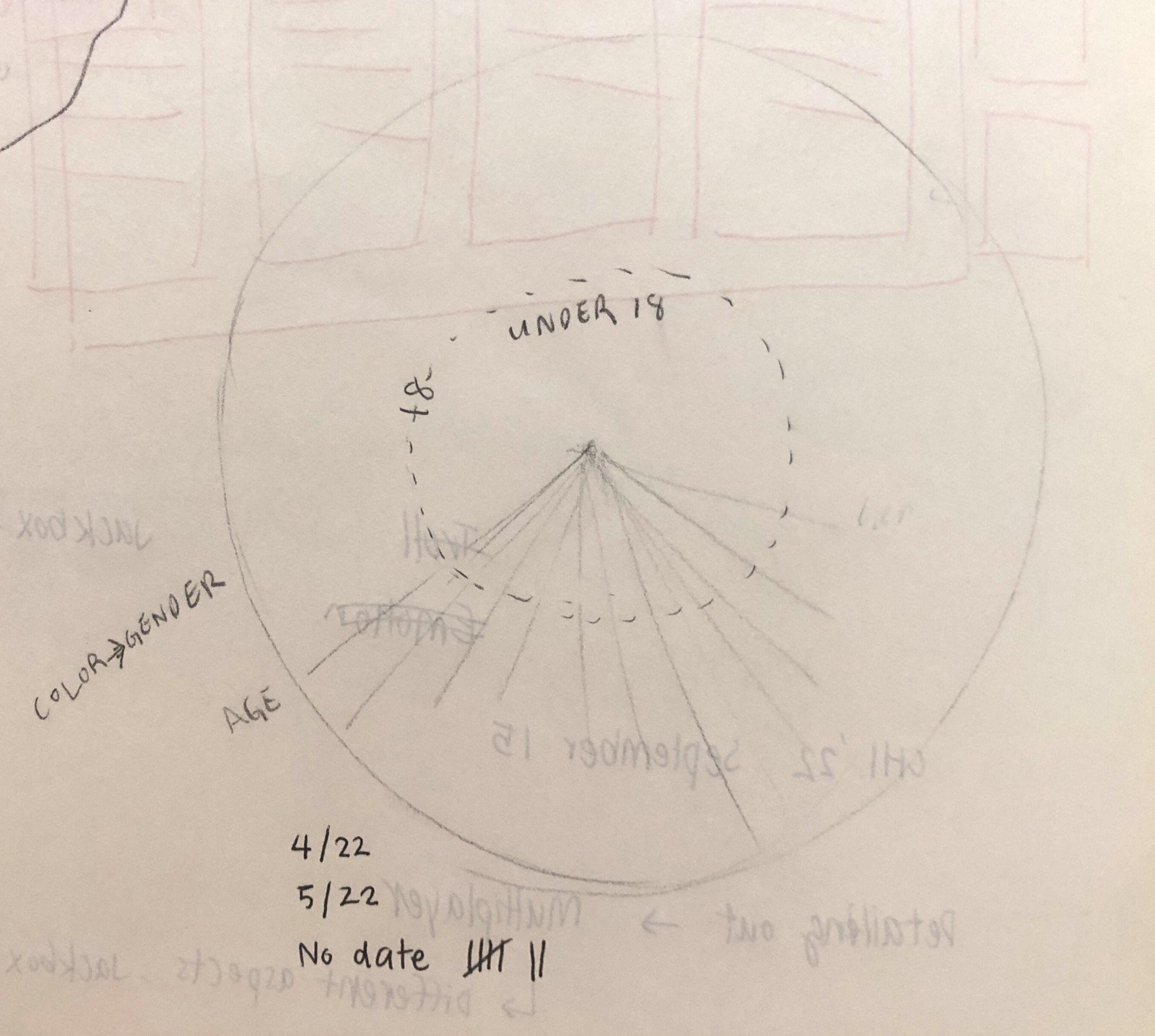
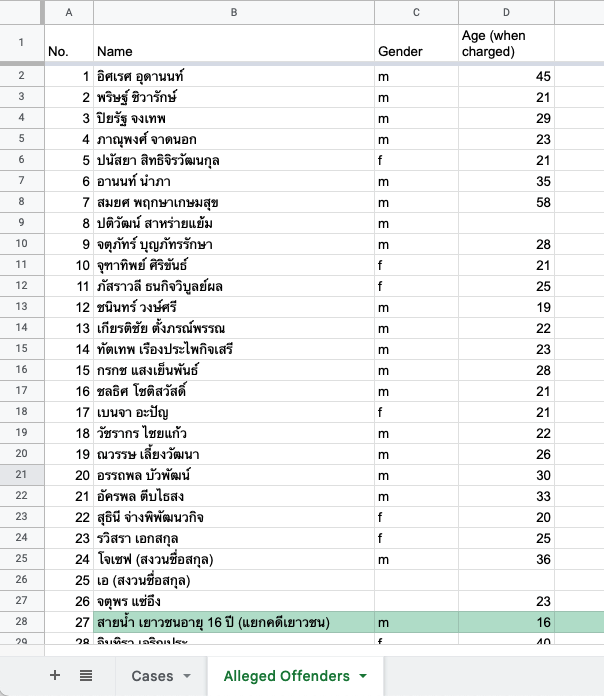
The length of each line indicates the defendant’s age at the time of the criminal charge. I attached two LEDs on the other half of the fabric with conductive tape that allows the LEDs to light up when the switch is on (magnetic button attached). The LEDs will highlight two defendants at the oldest age (59 years old) and the youngest age (14 years old).
PART 2: What did they do?
This second piece shows the types of causations through different colors of thermochromic paints — giving a speech at the protest (blue), creating or sharing a post on social media (purple), doing public activities (pink), and other (red). I started by sketching the data visualization, created a design in Figma, and printed it on a vinyl sticker. After placing a vinyl sticker on the fabric, I used thermochromic pigment to paint.
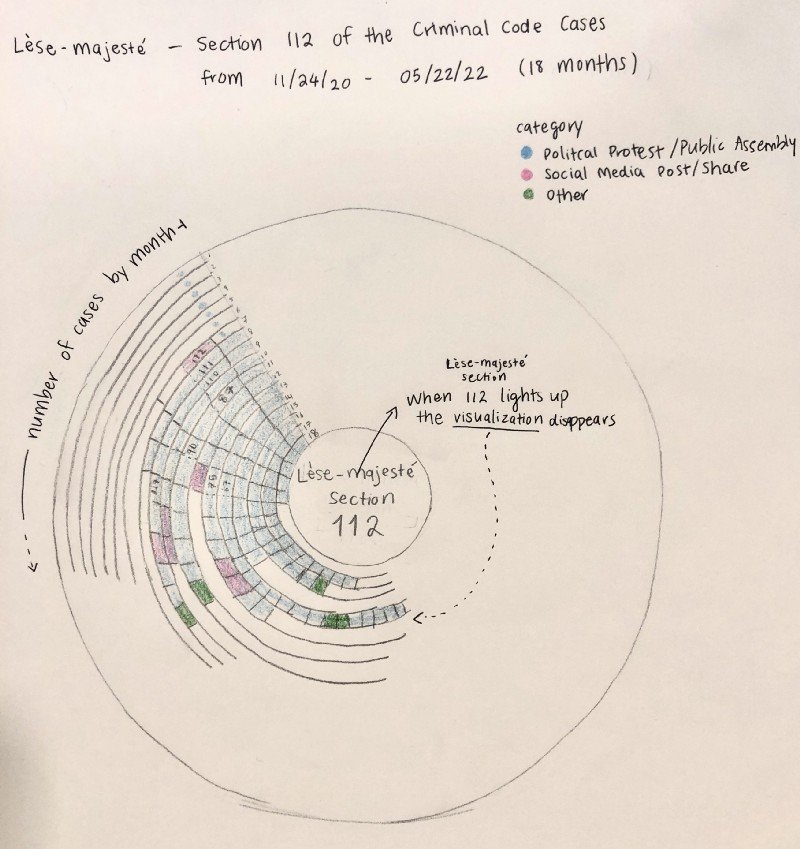
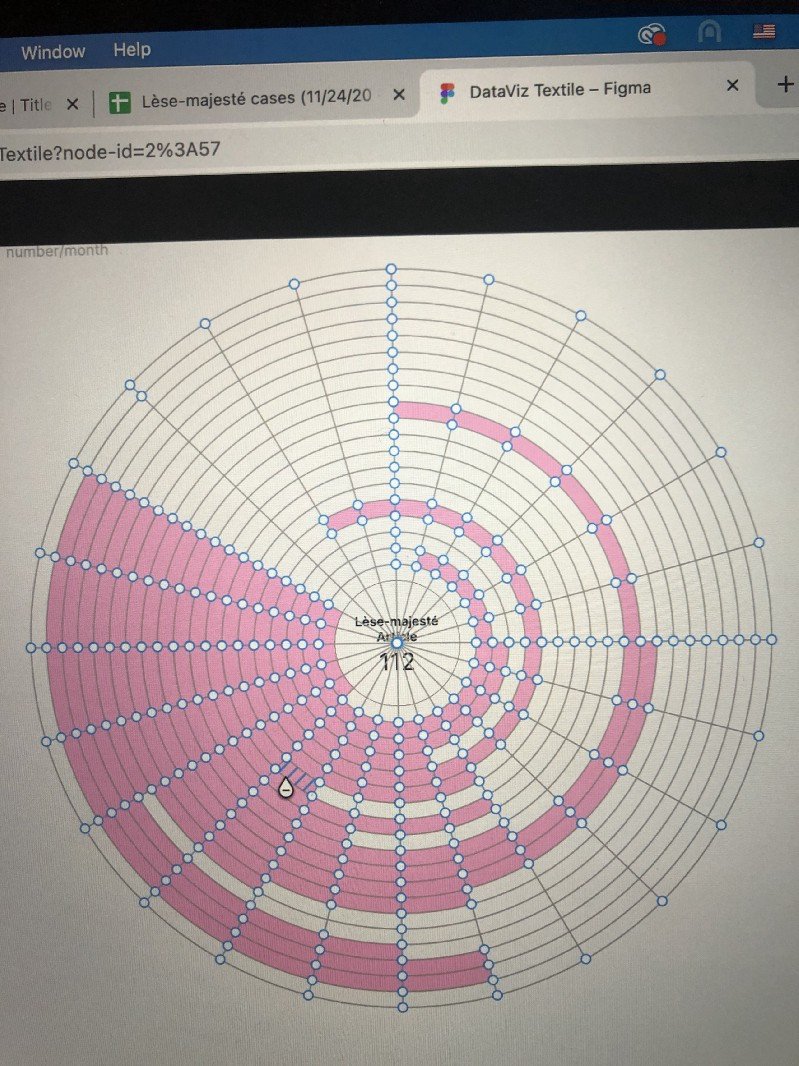
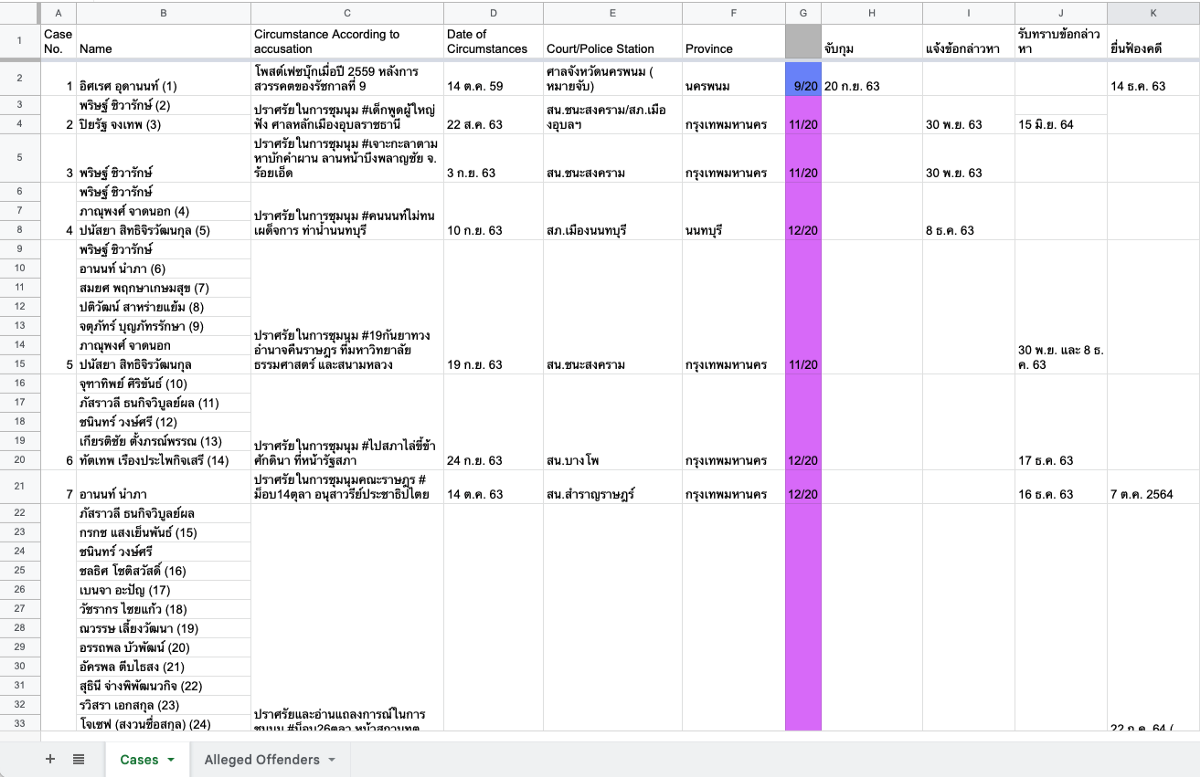
When the thermochromic paint is heated, it will temporarily disappear until the temperature of the fabric gets back to normal. I used copper thread to sew at the back of the fabric, turn on the power to heat it up for 30 seconds, and leave it off for 30 seconds on loop. I created this e-textile with the aim to portray the problem behind the Lèse Majesté Law. When this problematic law gets too powerful, the voices of Thai people go unheard.
PART 3: Where did people get charged?
The last component of this project is a map of Thailand with the number of cases based on location. I created a 3D-printed map where each city has a mountain with different heights according to the number of court/police stations relevant to Section 112 cases. Behind the map, I put the LED at the location where most cases are reported (Bangkok).
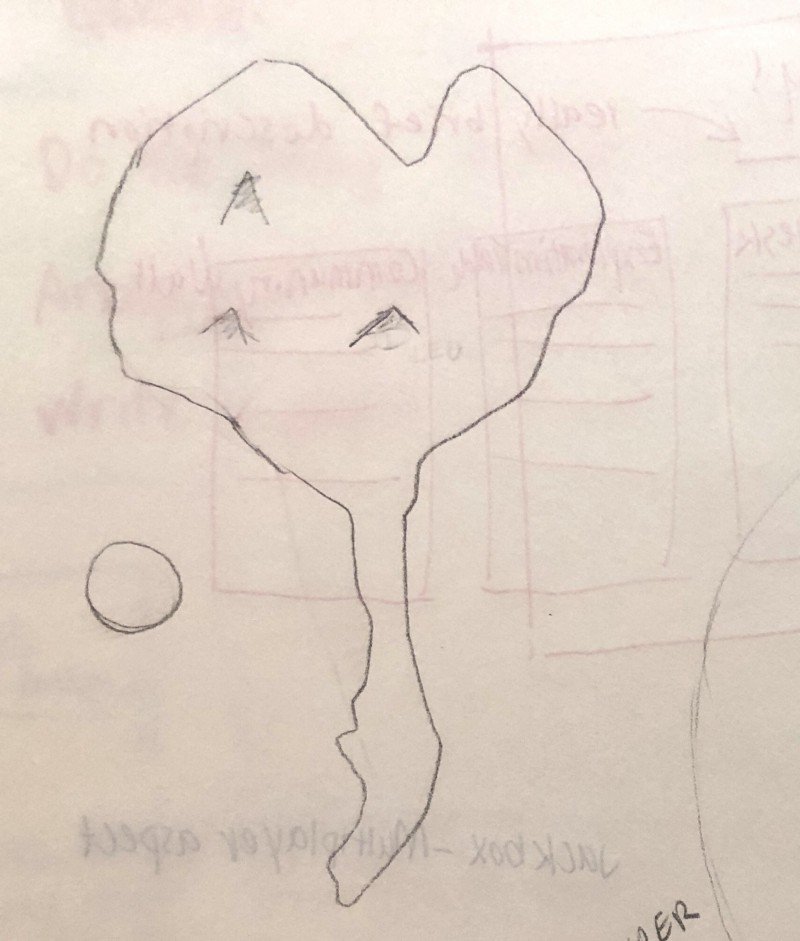
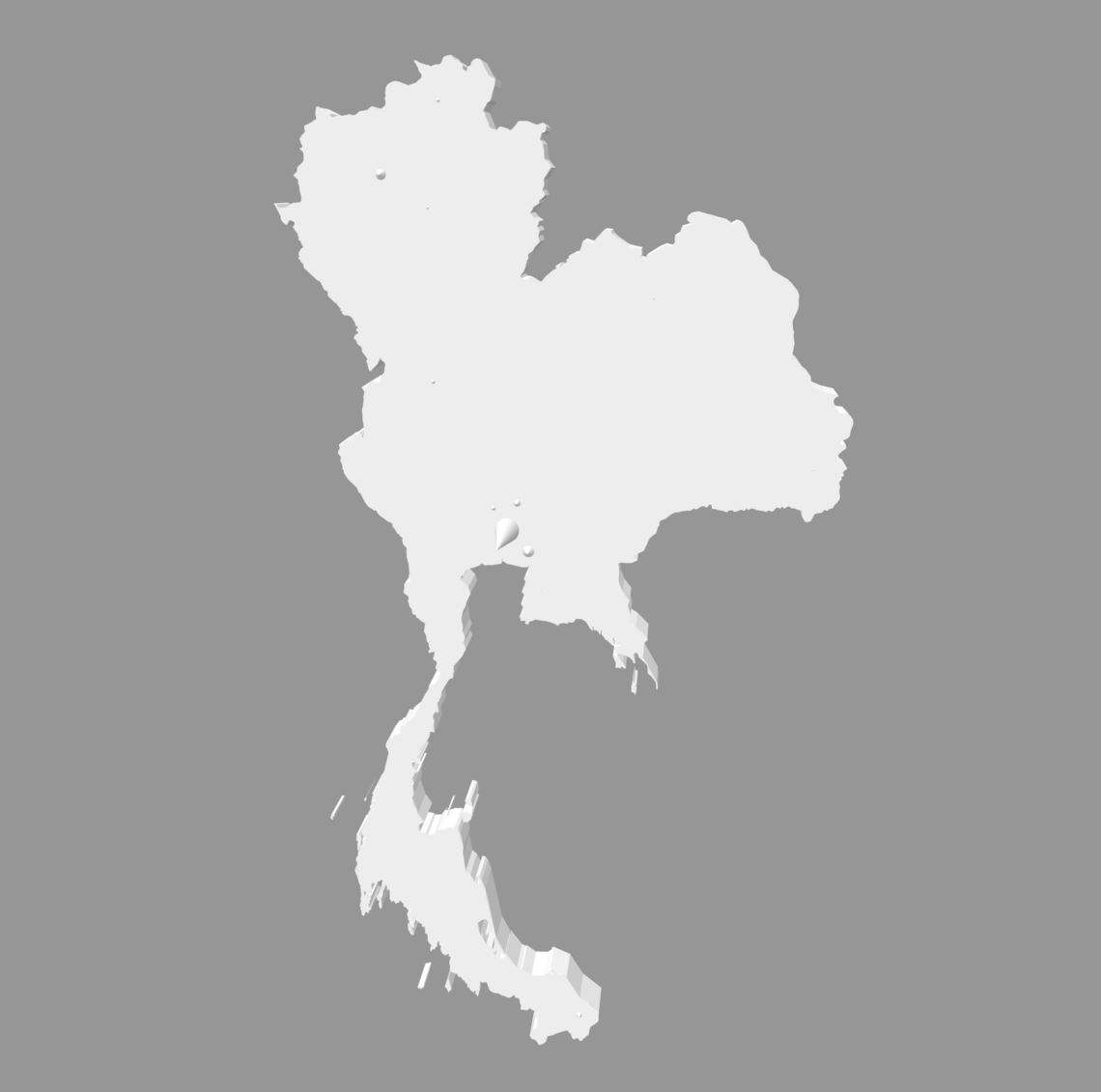
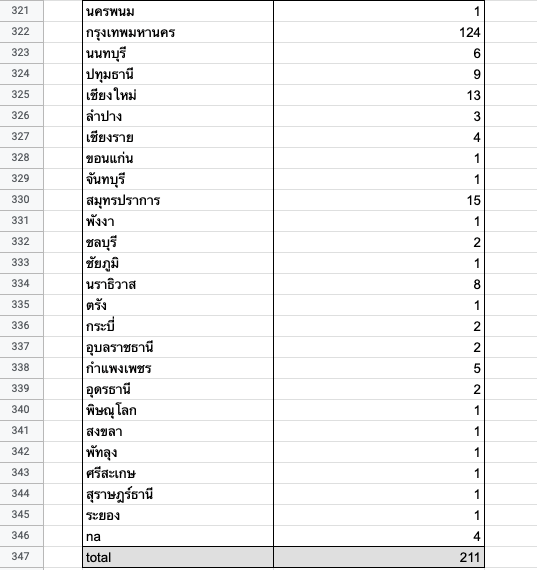
Bangkok is the capital city of Thailand, with the highest number of residences. Unlike other laws, Section 112 allows people from any part of the country to report the case although the defendant does not reside in the same city with the accuser.
The issues regarding the Lèse Majesté Law have been discussed widely among Thai people, but nothing has changed over the past 46 years. I hope to speak to the world through this art about what these people had been through. Please don’t forget them. And please don’t forget that once in the history, these people had spoken for all of us Thai people, in the country where the prison sentence for reckless driving causing death is shorter than speaking out.
Resources: https://tlhr2014.com/en/archives/24103
Learn more about Section 112 of Thai Criminal Code:
https://prachatai.com/english/category/section-112
https://freedom.ilaw.or.th/en/freedom-of-expression-101/QA-112



